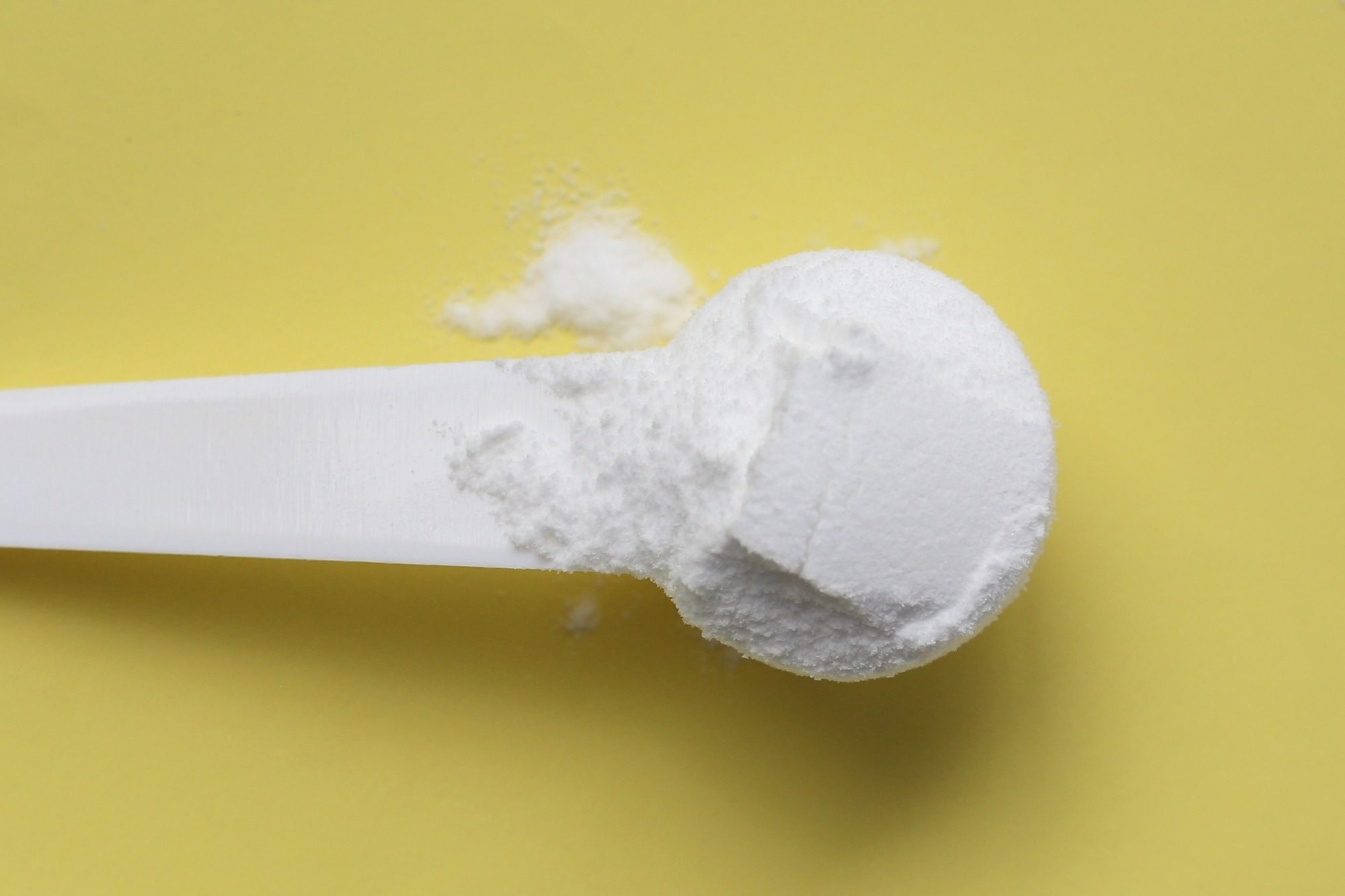A new systematic review finds that creatine may slightly ease depressive symptoms, but inconsistent results and low-quality evidence mean it’s too early to recommend it as a treatment.

Review: Creatine supplementation for treating symptoms of depression: a systematic review and meta-analysis. Image Credit: Bowonpat Sakaew / Shutterstock
In a recent study published in the British Journal of Nutrition, researchers examined the effects of creatine supplementation on depressive symptoms.
Major depressive disorder (MDD) is among the leading causes of disability and non-fatal health loss, affecting about 280 million individuals worldwide. Despite the availability of therapies, substantial unmet needs remain. For instance, many people do not receive sufficient treatment due to limited health literacy, financial constraints, or stigma. Moreover, current treatments often cause side effects, require long-term commitment, and do not provide satisfactory relief.
Biological Role of Creatine in Brain Function
Creatine is widely used to improve sports performance. It plays a vital role in brain energy homeostasis, and lower creatine levels in the brain have been linked to depressive symptoms and therapeutic resistance. Notably, dietary intake of creatine is inversely associated with depression prevalence. Notwithstanding the promising evidence, creatine is not currently recommended by major clinical guidelines.
Research Objective and Database Search Strategy
In this study, researchers evaluated the efficacy of creatine supplementation on depressive symptoms. The Cochrane Library, Web of Science, Medline, and Embase databases were searched for randomized controlled trials (RCTs) that included intervention (creatine) and control (placebo) groups and reported outcomes on depressive symptoms.
Study Design and Analytical Approach
Studies with co-interventions, such as exercise, psychotherapy, or antidepressants, were also included, provided that both groups received the intervention. Titles/abstracts were screened, followed by full text reviews and data extraction. The team performed pairwise meta-analyses using random-effects models with Hartung-Knapp-Sidik-Jonkman adjustment.
Risk of Bias and Evidence Grading Methods
Risk of bias was assessed using the revised Cochrane Risk of Bias tool. Heterogeneity was evaluated using I-squared statistics. The Grading of Recommendations, Assessment, Development, and Evaluation (GRADE) criteria were adopted to assess the quality of evidence.
Subgroup analyses were performed based on the risk of bias and primary diagnosis of affective disorders.
Study Pool Characteristics and Intervention Details
The search protocol yielded 558 records. Following deduplication and title/abstract screening, full texts of 34 studies were analyzed. Of these, 11 studies were retained for analysis.
Most RCTs were small, with sample sizes ranging from 10 to 100 participants, and were conducted primarily in the United States, followed by Brazil. All trials employed a parallel-group design, comparing oral creatine administration with a placebo. The median daily dose of creatine was 5 grams across studies.
Creatine was prescribed based on body weight in two trials. Two other trials involved multiple intervention groups; one study tested three different creatine doses relative to a single placebo dose, while the other evaluated two creatine and two placebo doses.
Co-interventions included antidepressants in four trials, electroconvulsive therapy in one study, and psychotherapy in one trial. The duration of treatment was generally short-term (4–10 weeks).
Measured Outcomes and Quality Assessment
Six trials recruited people with an affective disorder (bipolar disorder or MDD), and the remainder recruited otherwise healthy people. Depression symptomatology was measured using appropriate scales across trials, although their preferences were highly variable.
Six trials had a high risk of bias overall, while only one trial had a low risk of bias. The meta-analyses revealed an association between creatine supplementation and a statistically significant but small reduction in depressive symptoms.
However, there was substantial heterogeneity between studies. The certainty of evidence was rated as “very low” based on the GRADE criteria. Based on three trials, the results for depression remission were significant in favor of creatine.
A separate analysis of two trials on treatment response, however, found no evidence of a difference compared to the placebo. The authors noted that both findings were highly imprecise.
One trial reported quality of life, and after five years, both groups showed a clinically unimportant mean decrease of 0.1 points from baseline.
While some trials found no adverse events, others reported a slightly increased occurrence of gastrointestinal issues and mild elevations in serum creatinine in the creatine group.
Subgroup and Bias Analyses
In subgroup analyses, the positive effect was driven entirely by studies with a high risk of bias, while higher-quality studies with a lower risk of bias showed a null effect. Furthermore, when the researchers used a statistical method (the “trim and fill” method) to adjust for potential publication bias, the corrected effect estimate was reduced to null, suggesting the main finding is likely an overestimation. Effect sizes were also larger in studies that included populations with an affective disorder compared to trials with healthy individuals.
Summary of Findings and Clinical Implications
In sum, the findings indicate statistically significant but not clinically important lower depression scores with creatine supplementation compared to placebo. Depression symptomatology was about 2.2 points lower in the creatine groups, a reduction below the threshold for clinical meaningfulness and an effect the authors note may be “undetectable by clinicians.”
While the results might suggest a small or moderate benefit for people with depression, the authors conclude that the evidence is very uncertain and the true effect may be “trivial or null.” They strongly caution that the observed benefit is likely biased due to the low quality of most included studies and the potential for unpublished negative trials.
Therefore, larger and more rigorous RCTs are required for definitive conclusions, specifically trials that incorporate better blinding methods (such as masking biochemical test results) and are designed to minimize the impact of co-interventions.